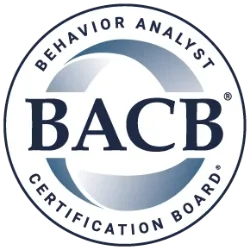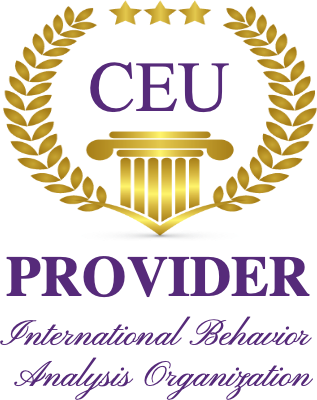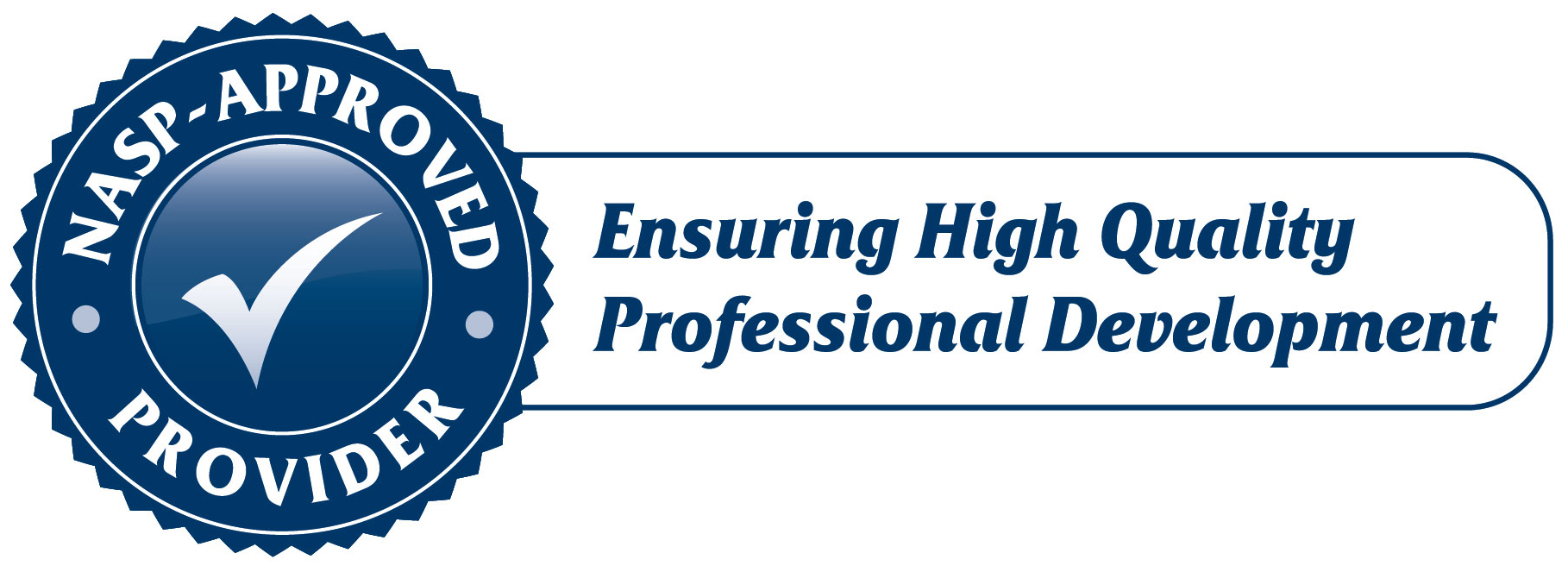Did you attend our Pyramid FUNctional Conference and want to bring the wealth of information to your team?
By popular demand, we merged our two innovative conferences into a single Pyramid FUNctional Conference, Beyond the Basics for 2023! If you would like to gain all the latest information on BOTH communication and behavior-related content, consider hosting one or more of these talks for your school or learning environment. This year’s two-day conference, was led by the co-developers of PECS® (Picture Exchange Communication System®) Andy Bondy, PhD and Lori Frost, MS, CCC-SLP and was held virtually on October 16th and 17th, 2023.
Day one focused on the Pyramid Approach to expanding and refining communication skills. Lori Frost kicked off the conference with a presentation on ethical collaboration. Next, an entire talk was dedicated to teaching commenting skills. Critics sometimes falsely claim that Pyramid focuses only on requesting skills – so, here’s your chance to learn about how to expand communication skills to incorporate creative and meaningful commenting opportunities. The first day of the conference concluded with the debut of a new talk that focuses on implementing strategies to expand communication skills for learners who have some speech.
Day two of the conference focused on a variety of topics related to the conditions under which behavior occurs. The conference began with a look at implementation of the Pyramid Approach to Education® around the globe. Participants left with fresh ideas to incorporate small programmatic changes that make big differences in creating effective educational environments. Next, our team explored how prompts are used in everyday life with all new information related to assessment of prompt types for specific learners within carefully designed lessons. The conference concluded with a full presentation on error correction with Dr. Andy Bondy providing new insights on the topic.
If you are interested in hosting one or more of these talks virtually for your group, please email us at pyramidus@pecs.com for pricing and scheduling.
Day 1: Communication
1. Ethical Collaboration Across Disciplines: A Case Study
(90 Minutes)
Presenter and Disclosures: Lori Frost, MS, CCC-SLP, Jo-Anne Matteo, MS, CCC-SLP, Donna Banzhof, M.Ed., BCBA, Effie Arampisoglou, MSc, BCBA
Description: Treatment goals for individuals with Autism Spectrum Disorder (ASD) often overlap for speech-language pathologists, families/caregivers, behavior analysts, physical and occupational therapists and other service providers. Collaboration across disciplines optimizes treatment outcomes.
This presentation will describe the components of different professional credentialing organizations’ codes of ethics. We analyze and discuss overlap for recommendations for collaboration and the use of evidence-based interventions. Using a case study, we describe how to effectively meet with all team members to develop plans to assess and teach critical communication skills and functional life skills throughout the day.
This talk has been registered for 0.15 ASHA CEUs under subject code Ethics and Ethical Decision Making – 7070, Intermediate Level. This talk offers 1.5 BACB Ethics CEUs and 1.5 IBA Ethics CEUs.
Learner Objectives:
- Describe ethics requirements for collaboration and mandates for use of evidence-based strategies for various team members in a school or clinic setting.
- List overlap in services and unique contributions by all team members
- Identify 3 goals for learner in case study
- Identify 2 strategies to overcome barriers to effective collaboration
2. Let’s Keep Talking – Strategies for Speech Expansion
(90 minutes)
Presenters and Disclosures: Anne K. Overcash, MEd, Jesseca Collins, MEd, BCBA, Louise Maggs, BSc (Hons) SLT, MSc, HPC, RCSLT, Developed with: Andy Bondy, PhD
Description: Pyramid is known for teaching learners visually mediated communication skills including PECS®. The Pyramid Approach is also designed to help learners who engage in emerging speech, including basic vocal imitation skills. This talk will describe several strategies that assist learners transitioning to speech after using PECS or SGDs, as well as learners who have some speech but have never used a picture-based system.
This 1.5 hour talk has been registered with ‘Are We Really Prompting? Prompting Strategies Revisited’ and ‘Error Correction: Whose Mistake?’ for a combined 0.45 ASHA CEUs, Intermediate Level. Partial credit is available.
Learner Objectives:
- Recognize strategies that help learners with restricted speech to expand vocabulary and sentence structure
- Describe strategies that promote greater spontaneous speech
- List strategies that help learners transition from PECS/SGDs to independent speech
3. Development and Expansion of Commenting Lessons Around the World
(90 minutes)
Presenters and Disclosures: Catherine Horton, MS, CCC-SLP, BCBA, Chihiro Negron MEd, BCBA, Effie Arampisoglou, MSc, BCBA, Lili Covaci
Description: Teaching a variety of communication skills can sometimes feel like a daunting task! This presentation will begin with a review of the rationale for teaching requesting skills to our earliest communicators. A review of teaching commenting skills will then be discussed and demonstrated. In addition, presenters will provide ideas for teaching fun, novel commenting lessons. Participants will learn about how commenting lessons are incorporated within lessons around the globe, as international consultants will share videos and lesson ideas. Participants will leave the training with fresh ideas for refining and expanding commenting lessons for all learners.
This talk has been registered for 0.15 ASHA CEUs under subject code Diversity, Equity, and Inclusion – 7030, Intermediate Level. This talk offers 1.5 IBA Cultural Diversity and Awareness CEUs.
Learner Objectives:
- Explain why it is critical to first teach learners requesting skills prior to the introduction of commenting lessons
- Describe the procedural steps for teaching basic commenting skills
- Identify three new practical lesson ideas for teaching commenting skills
Conference DETAILS: Day 1
CEUs: 0.45 ASHA CEUs (0.15 Ethics & Ethical Decision Making, subject Code 7070 and 0.15 Diversity, Equity and Inclusion, Subject Code 7030); 4.5 BACB CEUs (3.0 Learning; 1.5 Ethics); 4.5 IBA CEUs (1.5 Ethics, 1.5 Cultural Diversity & Awareness, 1.5 ABA Topic); 4.5 NASP Approved continuing professional development (CPD) hours. Satisfactory completion of this course requires participants to be present for the duration of the course and to participate in all student responding activities (e.g. questions, role play, quizzes, and surveys). Credits from your state organization may be available, see our list of approved professional organizations here.
Tuition Includes: Detailed Handouts with space for note taking, Certificate of Attendance, CEUs offered (see above for details)
Day 2: Behavior: Under What Conditions
1. Pyramid Approach to Education: Creating Effective Learning Environments Around the Globe
(90 minutes)
Presenter and Disclosures: Krysten Spottiswood, MA, BCBA, Keiko Suzuki, MEd, BCBA, Sibylle Bajorat, Tony Castrogiovanni, PhD, Catherine Horton, MS, CCC-SLP, BCBA, CAGS
Description: The Pyramid Approach to Education® (PAE) is a time-tested approach based on the science of learning. In this presentation, elements of the PAE will be highlighted across countries and cultures. Through multiple video examples, presenters will illustrate the application of the elements of the Pyramid around the globe. Participants will explore how small changes in their teaching will result in more meaningful outcomes for all.
This talk has been registered for 0.15 ASHA CEUs under subject code Diversity, Equity, and Inclusion – 7030, Intermediate Level. This talk offers 1.5 IBA Cultural Diversity and Awareness CEUs.
Learner Objectives:
- Apply the elements of the Pyramid Approach across countries and cultures
- Identify and overcome barriers to collaboration with all members of the learning team (teacher, paraprofessional, SLP, OT, PT, BCBA, school psychologist, administrators, caregivers/guardians) for application of the Pyramid elements
- Identify a minimum of three changes that can be applied to your current learning environment to improve learner outcomes, increase cultural awareness, and strengthen collaboration
2. Are We Really Prompting?: Prompting Strategies Revisited
(90 minutes)
Presenters and Disclosures: Keiko Suzuki, MEd, BCBA, Alexis Bondy, MEd, BCBA, Tony Castrogiovanni, PhD, Catherine Horton, MS, CCC-SLP, BCBA, CAGS, Jaime Wedel, MEd, CAGS, BCBA
Description: “Prompt Dependency” continues to be a topic of concern in the field of special education. Yet, identifying and eliminating prompts are areas that often receive little consideration. Further, some practitioners have biases related to the types of prompts selected and/or avoided. This presentation will explore the types of prompts that are evident in our everyday lives. Considerations for prompt assessment and elimination will be explored. Participants will have the opportunity to apply the information to common scenarios to refine implementation of these concepts within their lesson planning.
This 1.5 hour talk has been registered with ‘Let’s Keep Talking- Strategies for Speech Expansion’’ and ‘Error Correction: Whose Mistake?’ for a combined 0.45 ASHA CEUs, Intermediate Level. Partial credit is available.
Learner Objectives:
- Describe strategies to assess the effectiveness of the type of prompt selected
- Describe a minimum of three strategies to eliminate prompts
- Refine one current lesson through assessment of prompt type with plan for eliminating the prompt.
3. Error Correction: Whose Mistake?
(90 minutes)
Presenters and Disclosures: Andy Bondy, PhD, Jill Waegenaere, MA, CCC-SLP, Catherine Horton, MS, CCC-SLP, BCBA, CAGS, Anne K. Overcash, MEd
Description: Errors are inevitable. We will discuss whether these errors are attributable to the learners or the teachers. This presentation begins with a discussion related to traditional perspectives on error correction. We will then describe how teaching conditions influence error correction selection. Barriers to the use of error correction will be explored with practical solutions discussed. The presentation will conclude with practical examples of error correction implemented within a variety of functional activities.
This 1.5 hour talk has been registered with ‘Let’s Keep Talking- Strategies for Speech Expansion’’ and ‘Are We Really Prompting? Prompting Strategies Revisited’ for a combined 0.45 ASHA CEUs, Intermediate Level. Partial credit is available.
Learner Objectives:
- Contrast “errorless learning” with three plans for minimizing errors
- Identify four distinct error correction strategies
- Identify solutions for three possible barriers to implementation of error correction strategies
Conference DETAILS: Day 2
CEUs: 0.45 ASHA CEUs (0.15 Diversity, Equity and Inclusion, Subject Code 7030); 4.5 BACB Learning CEUs; 4.5 IBA CEUs (1.5 Cultural Diversity and Awareness, 3.0 ABA Topics); 4.5 NASP Approved continuing professional development (CPD) hours. Satisfactory completion of this course requires participants to be present for the duration of the course and to participate in all student responding activities (e.g. questions, role play, quizzes, and surveys). Credits from your state organization may be available, see our list of approved professional organizations here.
Tuition Includes: Detailed Handouts with space for note taking, Certificate of Attendance, CEUs offered (see above for details)

ASHA CE Provider approval and use of the Brand Block does not imply endorsement of course content, specific products or clinical procedures.
You can view our presenters’ financial and non-financial disclosure statements here.
Contact Us




